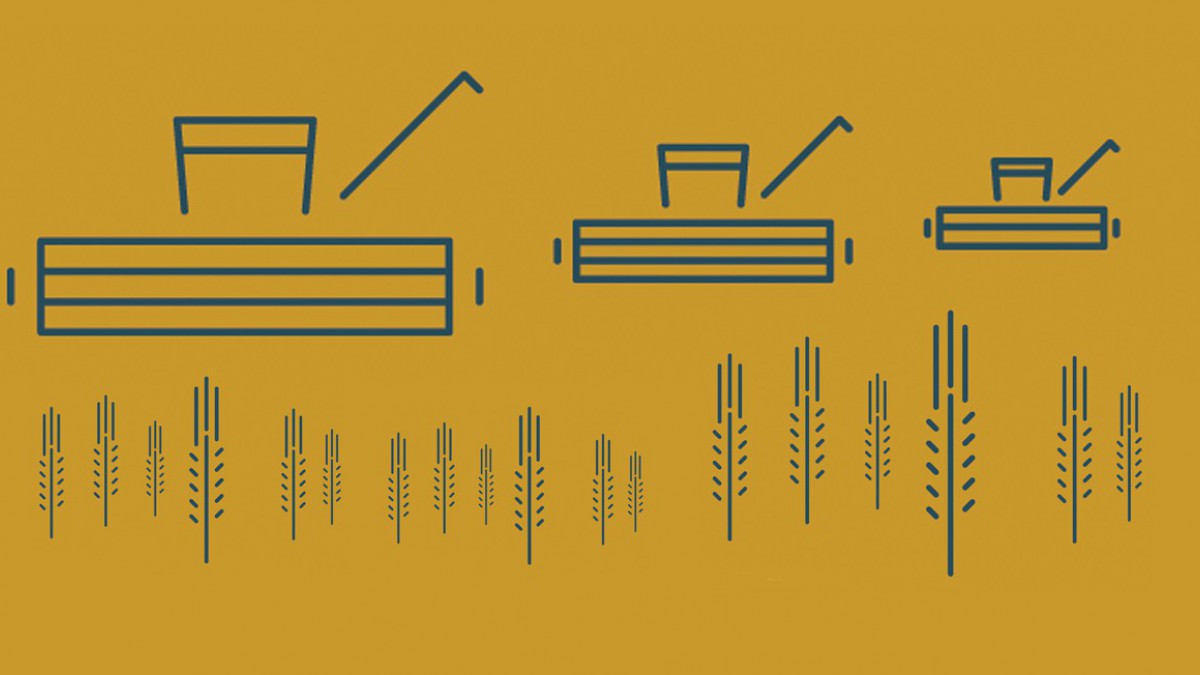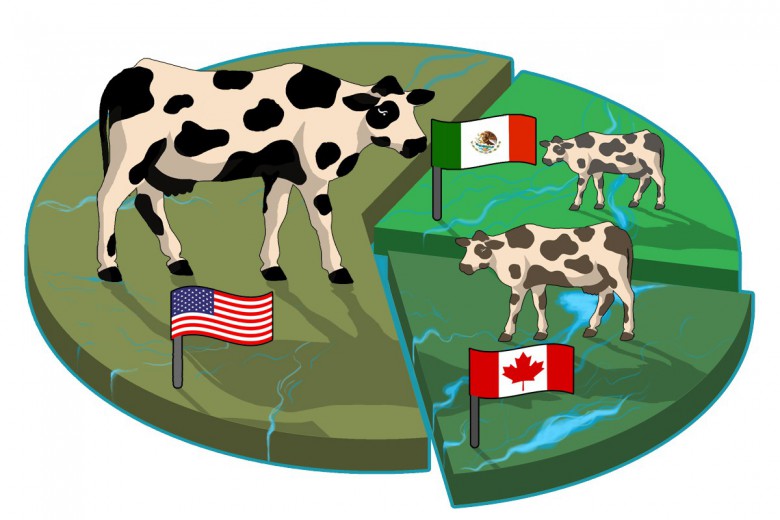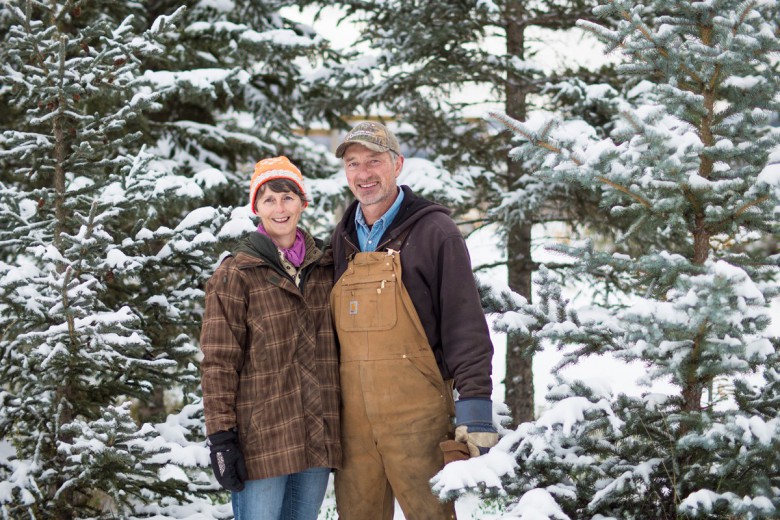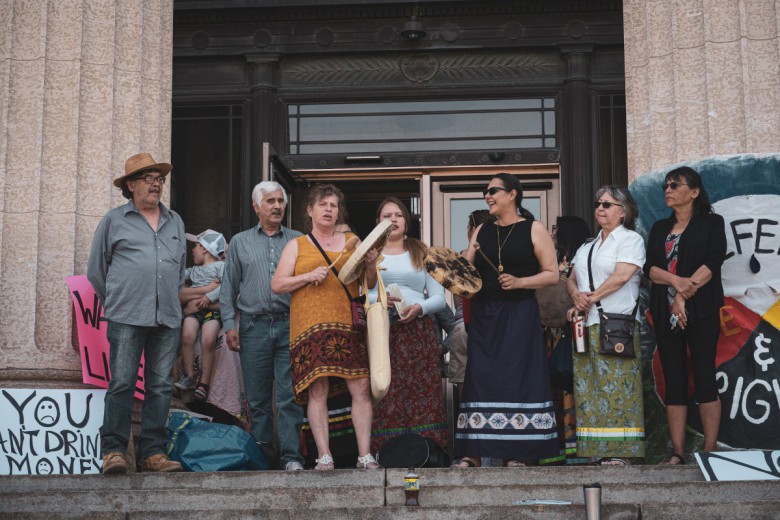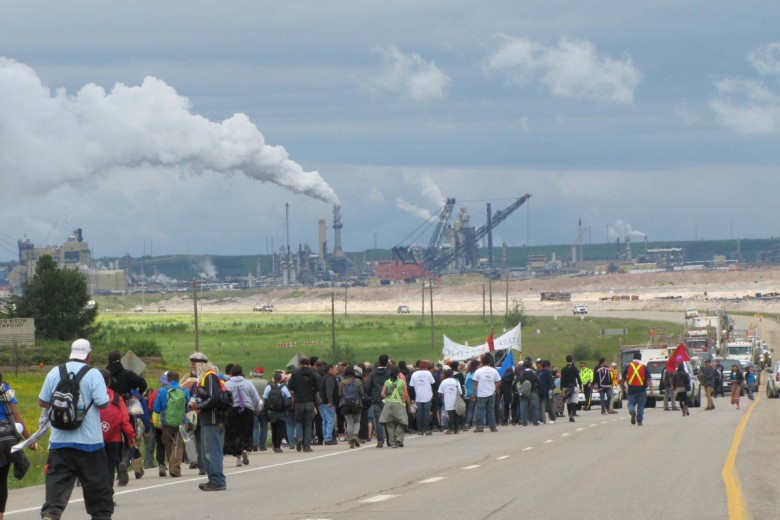For nearly 50 years, the National Farmers Union (NFU) has served as a leader in social and environmental justice on the Prairies, by taking on – and very often winning – difficult but critical struggles. Members – farm families and their urban allies – have achieved victories that have shaped not just the landscape of Canadian farming, but of Canadian politics in general. Over the decades, the NFU’s advocacy work has put billions of dollars into the pockets of family farmers across Canada and kept it within Canada’s economy, supporting employment and community life. Amid neoliberal government policies, rampant climate change, and corporate land grabbing, the NFU continues to fight for sustainability, income security, and farmers’ dignity.
1901 – Prairie farmers began organizing against exploitation by the railways and grain companies. Predecessors of the NFU were organized provincially in Manitoba, Saskatchewan, and Alberta between 1901 and 1909.
1920s – Farmer-owned grain handling co-ops like the Saskatchewan Wheat Pool were established in each Prairie province. They stood as a social and economic base for Prairie communities for nearly a century.
1960s – NFU precursor organizations in several provinces led movements to create supply management systems for dairy products, poultry, and eggs in the 1960s. Supply management is a Canadian innovation that works to prevent waste and provide fair prices for farmers, consumers, and processors without government subsidies.
1969 – Provincial farm unions amalgamated to form the NFU, allowing farm families to voluntarily join an organization that would advocate on their behalf at the national level.
1971 – After Kraft Foods refused to bargain with the union over milk prices, the NFU organized a boycott of Kraft to put pressure on the company. The boycott was supported by labour and urban groups, raising awareness about the economic issues faced by family farmers.
1971 – The NFU proposed a “land bank,” where retiring farmers could sell their land to the government for a fair price, after which the government would lease it out to new farmers at an affordable rate. The Saskatchewan government implemented a Land Bank Fund in 1973, which operated until 1983.

1973 – The NFU began a 15-year campaign to keep the Crow rate, a rail transportation subsidy that benefited Prairie farmers, and to defend farmers’ and railway workers’ interests against railway monopolies. The NFU organized rallies, a “Crow train” to Ottawa, lobbied politicians, and presented at every transport committee hearing. This resistance delayed the end of the Crow rate and kept the railways from taking over $10 billion from farmers.
1973 – NFU women were leaders in the struggle for matrimonial property rights in the wake of court cases like Irene Murdoch’s in Alberta, leading to groundbreaking legislation like the Matrimonial Property Act in Saskatchewan, which recognized that each spouse was entitled to an equal distribution of matrimonial property.
1975 – NFU farmers in the Peace River area first spoke up against proposed flooding of farmland by BC Hydro dams. In 2015, the NFU called on the B.C. government to place a moratorium on the Site C dam, and denounced its decision to proceed with the dam in 2017.
1978 – The NFU supported the People’s Food Commission, which called for an environmentally sustainable, healthy food system that prioritized justice for family farmers. Thirty years later, it would inspire the People’s Food Policy Project, which popularized the concept of food sovereignty, one of the NFU’s guiding principles.
1979 – The NFU began its resistance against corporate control of seed via Plant Breeders’ Rights (PBR) laws. In 1980 and again in 2004, the NFU helped stop legislation designed to prevent farmers saving and reusing their own seed. PBR legislation was introduced again in 2013 and passed in 2015. The NFU’s resistance resulted in a significant amendment to protect farmers’ interests.

1985 – The NFU voiced farmers’ opposition to “free trade” with the U.S., arguing that it would undermine structures like the Canadian Wheat Board (CWB), supply management, and single-desk hog marketing that counter corporate power in the marketplace. The NFU organized rallies against free trade at Mulroney’s 1987 visits to North Battleford and Swan River.
1989 – NFU members, along with Saskatchewan Federation of Labour representatives and others, were part of the 5,000-strong anti‐privatization rally in Regina, loudly opposing then-premier Devine’s privatizations and layoffs.
1992 – NFU women’s exchanges with farm women in Nicaragua led to the creation of La Via Campesina in Managua. LVC is a movement of landless peoples, peasants, small and medium‐sized farmers, agricultural workers, rural women, and Indigenous communities around the globe.
1995 – NFU members upheld the CWB by winning 11 of 12 positions in the 1995 CWB’s advisory committee elections. As a single-desk agency, the CWB was legally empowered to market all Western wheat and barley (except for feed sold domestically). It returned all proceeds to farmers every year, ensuring they were paid the full value of their crops. When the CWB Act added farmer-elected directors in 1998, the NFU successfully campaigned to elect candidates who supported farmers’ interests, as it did in all subsequent CWB elections. When the Harper government won its 2011 majority, the NFU mobilized to stop them dismantling the CWB. NFU members were in the House of Commons to witness the vote that killed the CWB in November 2011.
1997 – The NFU was one of the first organizations to raise the alarm about hog mega‐barns and to condemn government action to end single‐desk hog marketing in Manitoba and Saskatchewan. In the following years, NFU members and community members successfully opposed several hog mega-barn developments across the Prairies.
1997 – In Saskatoon, the NFU’s then-president, Nettie Wiebe, addressed the first major rally against the Multilateral Agreement on Investment (MAI), which would have reduced regulation of foreign multinational corporations; the global opposition movement would eventually kill the agreement. The NFU and allies also organized delegations and other events that stopped the Free Trade Area of the Americas (FTAA) in 2001, and the NFU continues to work with likeminded groups to oppose corporate rule via free trade agreements such as the CETA, TPP, and NAFTA.
1997 – The NFU defended the Canadian Grain Commission (CGC) by opposing cuts to the inspection of grain cars leaving country elevators going to port terminals. This inspection prevented grain companies from cheating farmers on grades and weights. In 2009, the NFU organized members of Parliament to “hoist” a bill intended to weaken and dismantle the CGC. And in 2015, the NFU campaigned against Bill C-48, which would have eliminated the CGC’s mandate to operate in the interests of grain producers. The bill died on the order paper.

1999 – After a 10‐year, Canada-wide struggle, the NFU and allies won the fight to keep Monsanto’s genetically modified (GM) dairy hormone, rBGH, out of Canadian milk.
2000 – NFU members called for a moratorium on GM food “until questions regarding consumer acceptance, human health, environmental implications, technology ownership, and farmer profitability are answered to the satisfaction of the majority of Canadians.” The call for a block is still in effect.
2000 to 2005 – the NFU was key in the campaign to stop Monsanto’s GM wheat, organizing a boycott of Monsanto’s Roundup herbicide, a major 2001 Winnipeg news conference, and the “Planting the Seeds of Doubt” tour; the union also appeared before the House of Commons’ agriculture committee and exposed links between the glyphosate used in Roundup and increases in wheat disease.
2010 – The NFU submitted detailed arguments against GM alfalfa to the USDA’s public consultation. In 2013 the NFU, along with the Canadian Biotechnology Action Network, held rallies in 38 communities on April 9, the national day of action against GM alfalfa. The NFU and allied organizations are still pushing for the deregistration of GM alfalfa varieties.
2010 – The NFU published “Losing Our Grip,” the first study of land grabbing in Canada, showing how farm debt, input financing, and weak provincial farmland ownership laws increase corporate control of the land. The NFU participated in Saskatchewan’s consultation on farmland ownership in 2015, which strengthened legislation to prevent foreign ownership.
2013 – The NFU urged the Alberta government to adopt strict regulations on fracking to protect land and water from damaging oil industry practices. In 2018, the NFU supported the Redwater appeal at the Supreme Court to ensure that “the polluter pays” if farmland is damaged or contaminated.
2016 – The NFU initiated a major research project to develop a plan for meeting Manitoba’s Paris Agreement goals for reducing greenhouse gas emissions from agriculture. It found that reducing fossil fuel-based inputs would increase farm profitability, reduce greenhouse gases, and improve crops’ resilience in extreme weather.

2016 – The NFU responded to the Canadian Transportation Act (CTA) Review with recommendations for improving grain transportation and limiting the monopoly power of railways; it also called for railways to be actively regulated and governed as vital infrastructure to serve the larger interests of Canadian society.
2017 – After a private company, Omnitrax Inc., closed Canada’s only Arctic deep-water port
and abandoned the Hudson Bay railway line, the NFU pointed to the roots of the problem: the privatization of the Canadian National Railway Company and destruction of the CWB.
2017 – The NFU spoke out against colonial violence, affirming the value of people over property after the tragic shooting of Colten Boushie.


